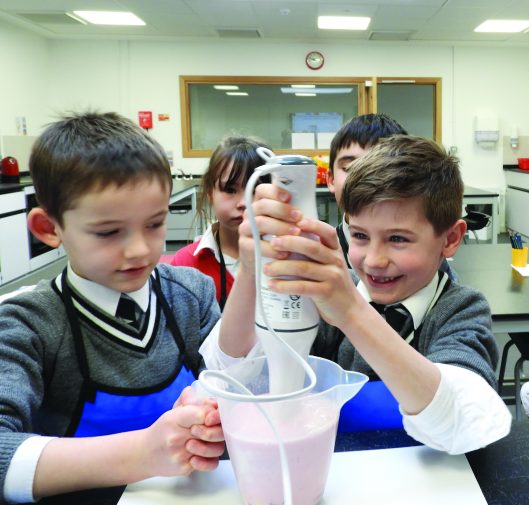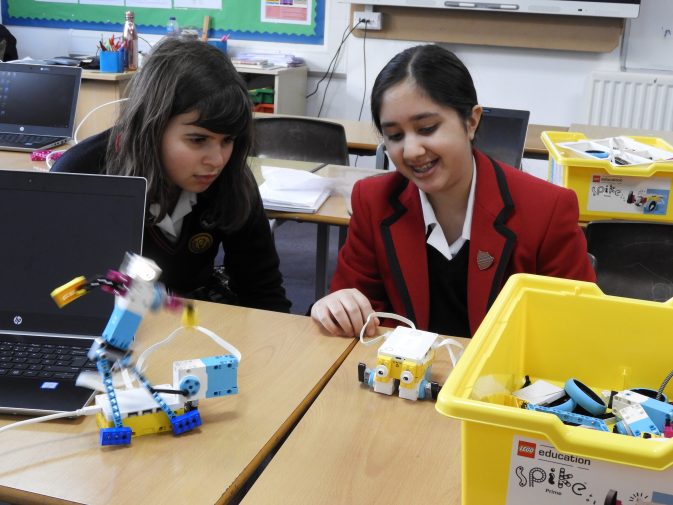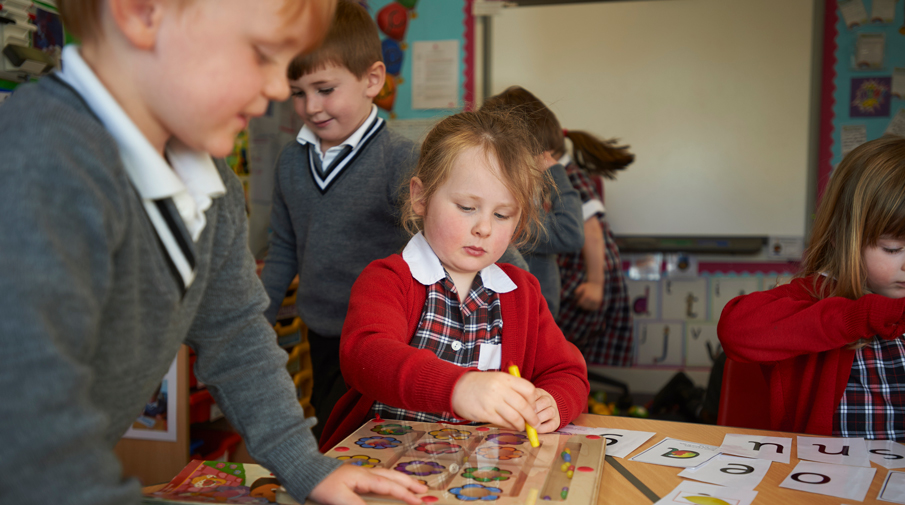League tables and targets have long been the benchmarks of success for schools. But is that the right approach, and how do you define ‘success’ anyway? If the rise of anxiety and depression in children is anything to go by, our obsession with exam results and rankings isn’t serving them well during their school years. Now, universities and employers are saying young people aren’t prepared for the challenges they face in the modern world.
If kids and businesses are crying out for change, perhaps it’s time for a rethink. Some are arguing that instead of focusing on the three ‘Rs’, we should consider the four ‘Cs’ – Collaboration, Communication, Creativity and Critical Thinking.
Downsend School in Ashtead is well aware of this disconnect and has adopted a new way of teaching in recent years, embedding STEAM learning (science, technology, engineering, arts and maths) in the curriculum across all years. There’s also been an increased focus on building emotional intelligence and resilience.
Headmaster Ian Thorpe explained why they made the change: ‘Industry is claiming that significant numbers of school leavers do not possess the skills to succeed, whilst university dropout rates have never been higher. This prompted us to take a braver stance in overhauling our way of teaching. The response has been astonishing. When children start school, they are 98% curious, when they start work they are 2% curious. We are trying to maintain those levels of curiosity for longer.’
“When children start school, they are 98% curious, when they start work they are 2% curious. We are trying to maintain those levels of curiosity for longer.”
Kate Timms, Head of Marketing, adds, ‘A changing parental body is actively rejecting the hot houses, pre-tests and anything that places undue stress on children. It seems to combine with a change in society that sees life differently – what do we value – and more people questioning whether perfect exam results and getting into the ‘best’ universities is the route to happiness.’
With artificial intelligence taking over many jobs, ‘softer’ skills – the things computers can’t do – are becoming more desirable, as Kate explains. ‘A fundamental shift came a few years ago when graduate recruiters at some of the big banks, Google etc. started to say they were looking less at degree outcomes and more at a wider range of ‘non-cognitive’ skills. It was less about learning one tool and more about having the ability to learn multiple tools quickly, talk in layman’s language, explain complex concepts to large teams and collaborate to bring ideas to life.’
How do you nurture children’s innate curiosity and foster the spirit of creativity they’ll need as they go through life? Head of Little Downsend, Vanessa Conlan, says keep it simple: ‘Nurseries are replacing conventional toys with ‘loose part’ natural materials which in all their simplicity and complexity afford children a wide range of play and learning experiences; they reduce sensory impact with their neutral colours and can be used in any way the children’s imagination takes them – the opportunities are limitless. Stones, wooden discs and pine cones are great for investigating balance, pattern and sorting – far more powerful than a box of blocks!’
As the last generation of parents who experienced ‘analogue’ childhoods, we didn’t have the smartphones, tablets or social media that our children have. How can we understand what they’re going through and help them navigate this rapidly changing landscape? By building their resilience, so they can face whatever lies ahead with confidence.
Kate says, ‘This generation of kids can’t bear failure – they see it as a terrible thing, but recruiters say they need people who can try things without fear of failure, learn and move on and not have some sort of crisis about it. One of the things I am trying to do with my own children is talk to them about not accepting the status quo – if something doesn’t work, how would you fix it? Encourage them to ask questions and ponder on the answers. And – as much as I hate mess – let them experiment with mud, wood, water, glitter etc…’
From mental health to mobile phones, our children face a future filled with challenges, so it’s encouraging to know that creativity can help unlock those problems, while helping them achieve the academic results that, realistically, do still matter. The key is to question that ‘good/bad’ binary. As Ian says, ‘On the wall of our Study Centre is a quote from Thomas Edison: “I never failed. I just found 10,000 ways it didn’t work!” We need to adopt a similar approach with our children. The key advice for parents is not to equate success with perfection.’

and practical theory.

Words by Phoebe Frangoul





